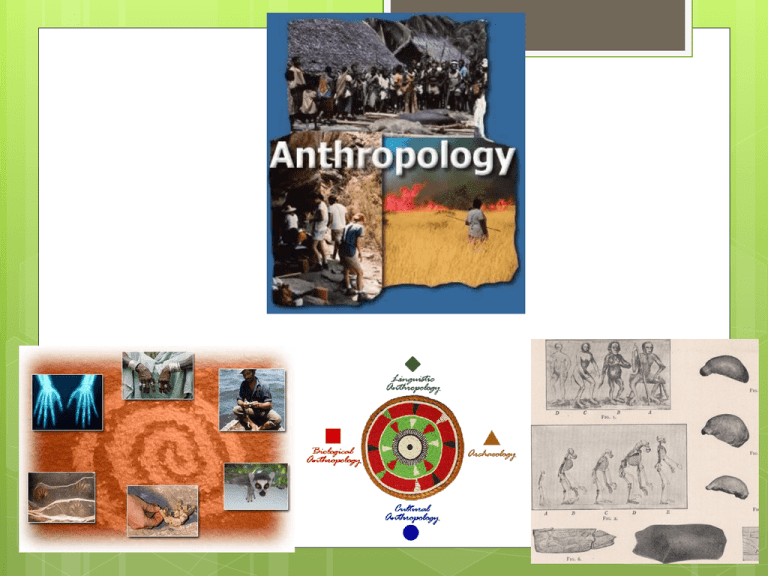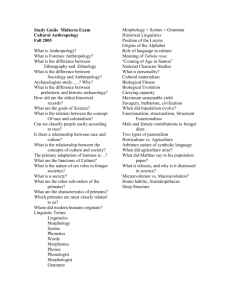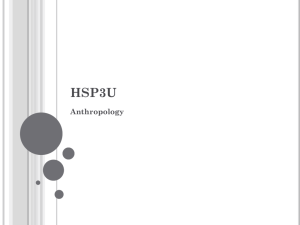Physical Anthropology
advertisement

What is Anthropology? •Anthropology is the broad study of humankind around the world and throughout time. •It is concerned with both the biological and the cultural aspects of humans. There are four main subdivisions (areas) in the study of Anthropology: • • • • Physical Anthropology Archeology Cultural Anthropology Linguistic Anthropology We will focus on the following in this course… Physical Anthropology: Theory of Evolution Origin of Humans Primatology Evolutionary Timeline Genetic Inheritance Physical Adaptations Anthropologists: Darwin Leakey's Cultural Anthropology: Definition and Aspects of Culture Race as a Social Construct Race and Adaptation Participation/Observation Anthropologists: Jane Goodall Franz Boas Margaret Mead Physical Anthropology Where did we come from? How did our bodies evolve? Why are humans a unique species? Examine the photographs. Donald Johanson and “Lucy” Jane Goodall observing Chimpanzees Physical Anthropology Paleoanthropology Study bone and stone remains Primatology Study primates. Human Variation Compare and contrast existing human populations Read the textbook on the discovery of Australopithecus Ramidus (pg. 41), Australopithecus Afarensis (pg. 38), and Homosapiens Neandertalensis “Neanderthal ” (pg. 42). In point form, record the importance of the discovery of these human species. Define and explain the significance of “bipedalism.” Shows that our human ancestors were walking upright much earlier than once thought. Walked upright and could also move in the trees. Adult human ancestor. Walked upright and had the ability to speak. Bipedalism: standing upright with our lower limbs for support and locomotion. It is the single feature that separates us from closest relatives (chimpanzees) Debate about whether they are our direct ancestors or lost out to modern humans in survival of the fittest. Interbred with humans. Burial site show abstract thinking (spirituality) . Made and used complex tools and lived in caves. Humans and Primates: Our Unique Connection Similarities to Primates: Manoeuvre arms flexibly in all directions Nails instead of claws Opposable thumb to grasp Fast responding nerves from brain to hand Rely largely on eyesight Can judge distances – 3D Vision Humans and Primates: Our Unique Connection Characteristics Unique to Humans Walk upright “bipedalism” Largest, most developed brain Form close, long-lasting relationships Humans communicate complex ideas through spoken language (can teach their young) Can think critically and abstractly Interesting Lectures What separates us from chimpanzees? Why aren’t chimps still evolving into humans?






